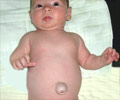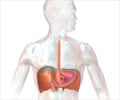Total extraperitoneal inguinal hernioplasty (TEP), the minimally invasive hernia repair procedure was compared to higher patient satisfaction, compared to the open surgical Lichtenstein repair.

Hasan H. Eker, M.D., of Erasmus Medical Center, Rotterdam, the Netherlands, and colleagues conducted a prospective multicenter randomized clinical trial and randomly assigned 660 patients to receive one of the two techniques (336 to TEP and 324 to Lichtenstein repair). The mean (average) age of patients was 55 years at the time they were included in the study and long-term follow-up visits occurred at one year and five years after surgery.
"Postoperative pain in the short term and chronic pain at five years after surgery were significantly greater after Lichtenstein repair vs TEP (32 percent vs 23 percent and 28 percent vs 15 percent, respectively), as was impairment of inguinal sensibility (22 percent vs 1 percent)," the authors comment. "Patients are more satisfied after TEP with the surgical procedure and with their operative scars. Therefore, TEP should be recommended in experienced hands."
The authors note that the experience level of the surgeon was associated with hernia recurrence after inguinal hernia repair. The overall incidences of hernia recurrence after TEP and Lichtenstein repair were comparable at five years after surgery, but among experienced surgeons (those who had performed more than 25 procedures) the recurrence rates were "significantly lower" after TEP, the results indicate.
However, the positives outcomes associated with TEP are counterbalanced by its association with significantly higher incidence of operative complications, the researchers explain.
"However, none of these operative complications affected the long-term outcomes of patients," the authors conclude.
Advertisement











